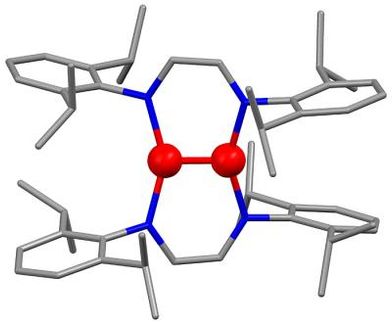Liquid Metals Are in the Focus of a New Research Alliance
Advertisement
Liquid metals are the research focus of the new Helmholtz Alliance LIMTECH (Liquid Metal Technologies). The Helmholtz-Zentrum Dresden-Rossendorf (HZDR), which coordinates the Alliance, and the Karlsruhe Institute of Technology (KIT) pool their competences in this network together with other Helmholtz centers and universities in Germany and abroad. LIMTECH pursues the objective of researching and continuing the development of liquid metal technologies for a broad spectrum of applications. 20 million euros have been set aside for this project.
Liquid metals are used in numerous industrial branches, for example, in steel and light metal castings, and are becoming increasingly significant for such future-oriented technologies as new liquid metal batteries for energy storage, CO2-free hydrogen production, or the manufacture of solar cells. This is due to their capabilities of storing energy in large quantities and dissipating heat effectively. Their thermal conductivity is 50 to 100 times higher than the thermal conductivity of water; and they continue to stay liquid in a broad range of temperatures. That’s why liquid metals are best suited to cool down highly energetic processes. They, thus, also contribute towards improving the energy and resource efficiency since the efficiency of thermodynamic processes increases with increased temperatures. Two subprojects of the Alliance are, thus, also dedicated to the use of liquid metals in solar power plants.
Over the past few years, the operational safety of technologies using liquid metals has increased significantly. This was made possible through new measurement procedures which permit the full monitoring of the requisite flows. Continuing this development is one goal of the new Helmholtz Alliance LIMTECH. Another goal is to increase the energy and resource efficiency of liquid metal technologies, for example, in metal casting, the separation of valuable metals from molten slags, and the production of solar silicon. “German research is already among the world’s best, and we’re planning to expand this position even further,” notes Dr. Gunter Gerbeth from the Helmholtz-Zentrum Dresden-Rossendorf, who coordinates the LIMTECH Alliance.
Most read news
Other news from the department science

Get the chemical industry in your inbox
By submitting this form you agree that LUMITOS AG will send you the newsletter(s) selected above by email. Your data will not be passed on to third parties. Your data will be stored and processed in accordance with our data protection regulations. LUMITOS may contact you by email for the purpose of advertising or market and opinion surveys. You can revoke your consent at any time without giving reasons to LUMITOS AG, Ernst-Augustin-Str. 2, 12489 Berlin, Germany or by e-mail at revoke@lumitos.com with effect for the future. In addition, each email contains a link to unsubscribe from the corresponding newsletter.




























































